By Shine Staff
When the street lights flickered on in the Ndosho neighborhood of Goma last March, it marked not just an important step for the impoverished area of the Democratic Republic of Congo’s’ sixth-largest city but also for clean energy financing. With the project bringing light to the previously forbidding nighttime streets, Congolese celebrated there, likely unaware that theirs could the first in a number such celebrations in coming years.
The Goma community streetlight project was the first to be paid for with an innovative new financing instrument, Peace Renewable Energy Credits (Peace RECs or P-RECs), launched by Shine member Energy Peace Partners. P-RECs aim to unlock renewable energy investment and financing for countries which are plagued by poverty and conflict, are vulnerable to the effects of climate change, and suffer from little access to renewable energy or any electricity at all. The instrument is essentially a high social impact version of the traditional International Renewable Energy Certificate (I-REC), which allows green energy-producing companies to sell renewable energy usage claims for the megawatt hours they create. Companies with renewable energy or sustainability targets wishing to reduce their carbon footprints typically buy I-RECs.
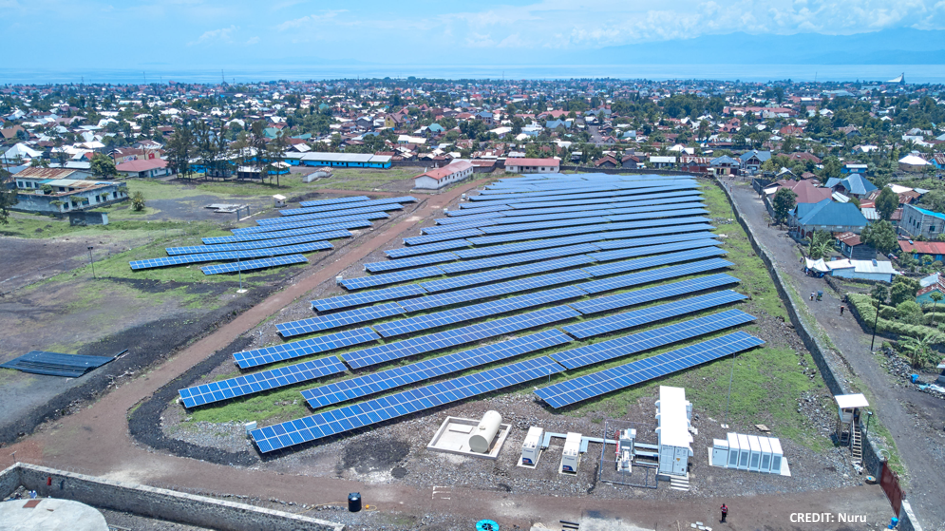
The inaugural P-REC project is a 1.3MW solar plant in Goma, DRC, built by Congolese developer Nuru and commissioned in February 2020. The plant is one of the largest off-grid solar plants currently operating in sub-Saharan Africa.
Though the billion-dollar international market for RECs has been booming, to date it has remained largely unavailable to communities at the last mile because of instability, conflict and poverty in countries that lack the kinds of incentives – like RECs – that have driven renewable energy growth elsewhere. This prompted an innovative new idea at Energy Peace Partners: identify emerging renewable energy projects in fragile, energy poor countries and introduce them into global renewable energy markets under the P-REC rubric. P-RECs help big corporations meet their sustainability and/or social responsibility commitments, while bringing much-needed financing for emerging clean energy projects in communities where it can have the greatest impact on the people who need it the most. If the project is not yet financed, pre-selling the P-RECs can help raise the money to bring it to fruition; and if it is already financed then the money can be used directly on transformative renewable energy projects in the community.
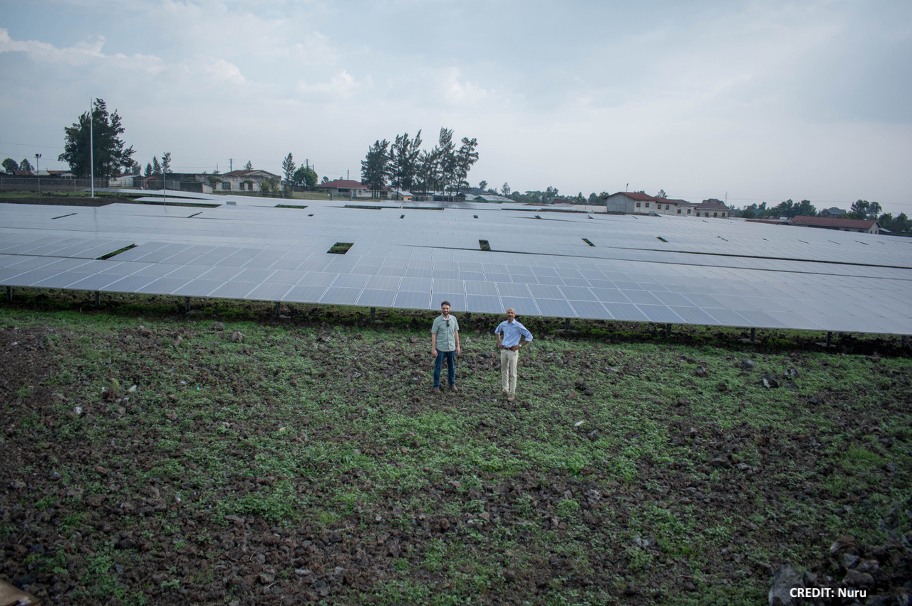
EPP’s Dave Mozersky and Sherwin Das at the site of the inaugural P-REC project in Goma, DRC (March 2020).
Energy Peace Partners believes that expanding clean energy in conflict-affected communities leads to a range of positive outcomes that can support durable peace. Access to renewable energy, for example, contributes to increased economic opportunities; better health and education outcomes; improved security; reduced pollution and carbon emissions; and creates new opportunities for conflict resolution and peacebuilding. Distributed renewable energy may also reduce reliance on the diesel and charcoal markets that, in some communities, fund the activities of conflict actors.
“[The goal for P-RECs is to] catalyze renewable energy investments in places where they can promote peacebuilding in the long run,” said Sherwin Das, Managing Director at Energy Peace Partners. “Peace is a notoriously difficult state to measure, but we’re looking at different ways we can do that,” Das said.
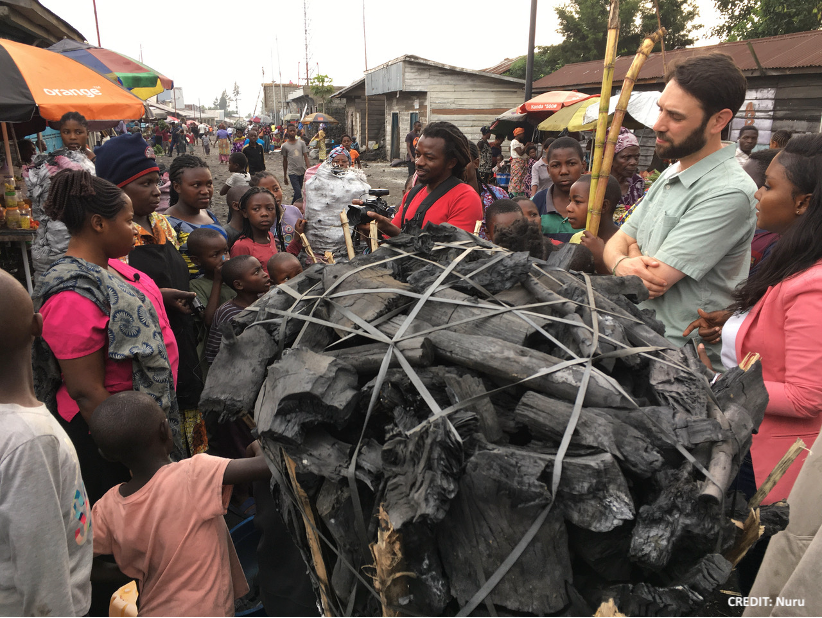
EPP’s Dave Mozersky in Ndosho, the neighborhood in Goma where a P-REC-funded community
streetlighting project was implemented (March 2020).
The effect on Ndosho has been extraordinary. In Goma, developer Nuru pre-sold P-RECs from a new solar energy system it was building to Microsoft and used the revenue to install streetlights for Ndosho, one of the city’s poorest and least electrified neighborhoods. The street lights, which had been identified as a priority project by the local community, have since bolstered security in a densely populated, high-crime area. They have also enabled increased productivity as commercial activites are able to continue after the sun sets: businesses stay open longer and night markets have sprung up. The streetlights have helped create a new sense of community and safety in a neighborhood previously kept in the dark. “It has transformed the culture of the neighborhood,” said Das, who visited and spoke with residents of the community just before the streetlights were in stalled.
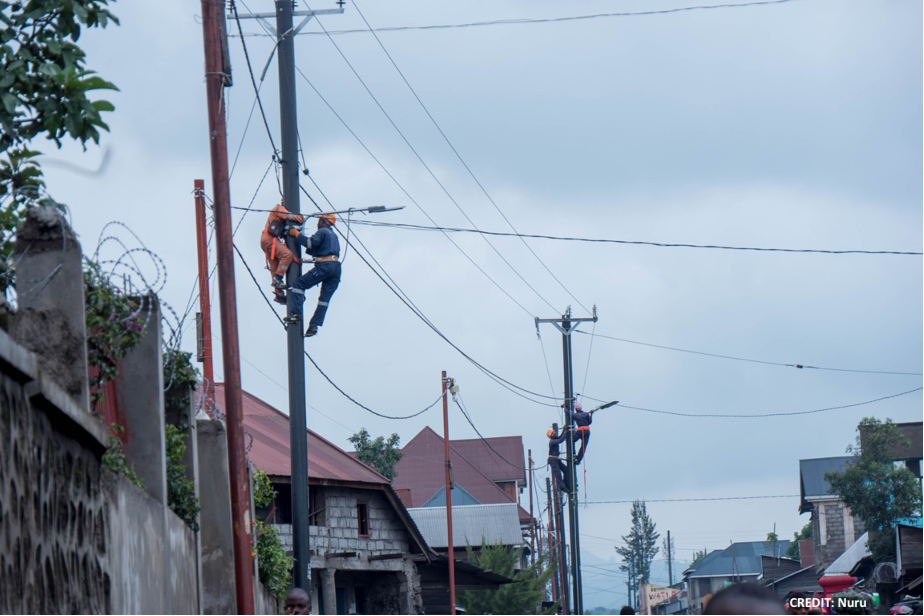
Microsoft’s purchase of the first-ever P-RECs funded the procurement and installation of 35 community streetlights in the neighborhood of Ndosho in the city of Goma. Goma is the capital of North Kivu Province, where 3% of the population has access to electricity.
The Goma project has been a great success both for Ndosho and, more broadly, as a test-case for an innovative way to broaden clean energy access. Energy Peace Partners is now scaling up its pipeline of P-REC projects across its target countries in Africa while exploring the first P-REC projects in Asia. By opening new avenues for renewable energy to flow to the last mile, P-RECs may ensure that the lights of Ndosho shine brightly and as a model for other vulnerable communities around the world.
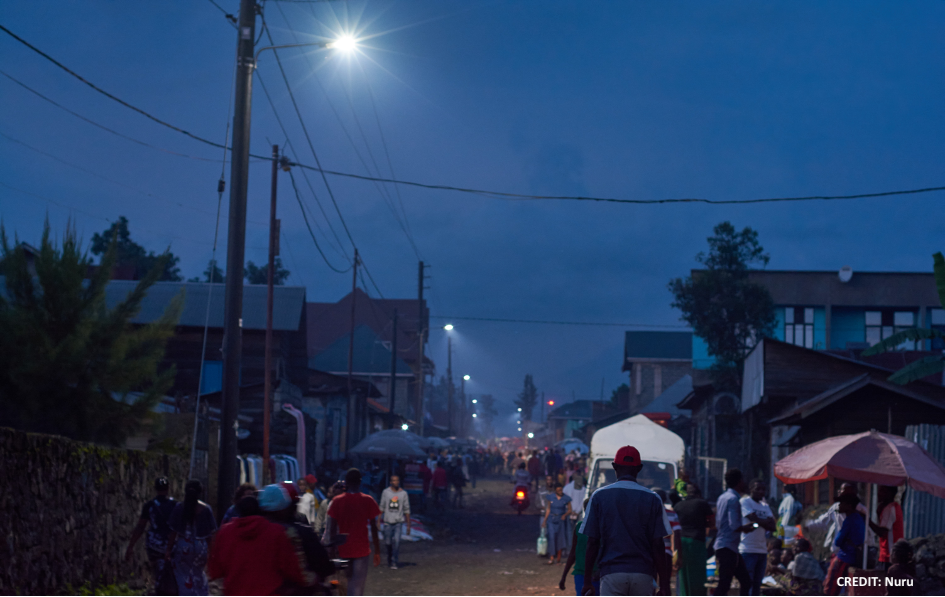
The P-REC-funded streetlights have been transformative. 28,000 local residents have benefitted from improved nighttime safety and security, increased commercial activity as businesses now stay open at night, and reduced reliance on expensive and polluting diesel generators in an area that has never had electricity grid infrastructure.


